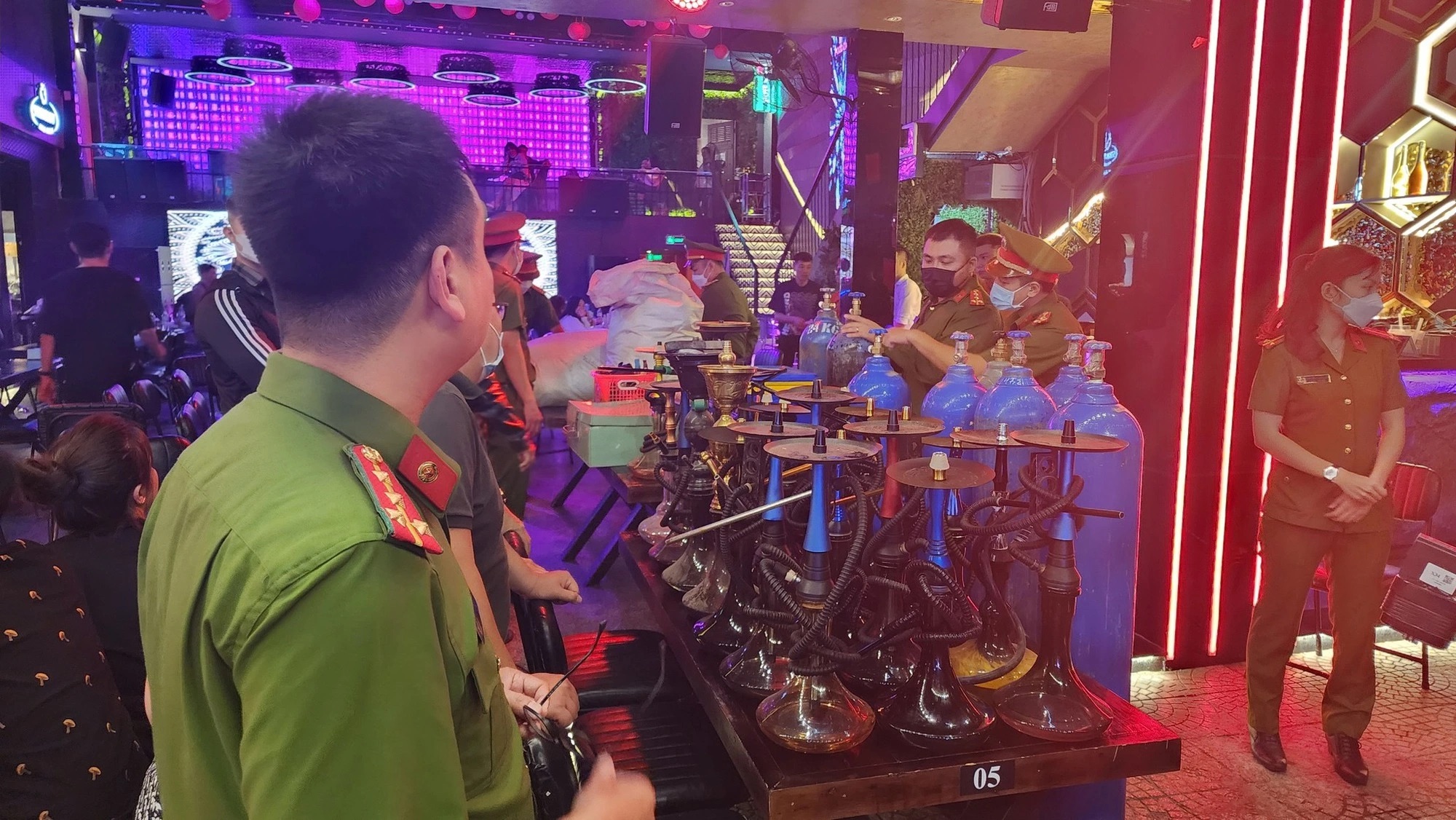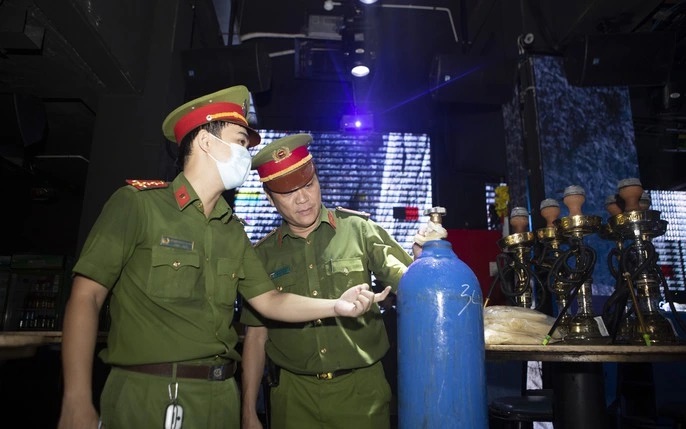A Million-Dollar Business, Now Behind Bars
In July 2025, a bar owner in Ho Chi Minh City was arrested after authorities uncovered his large-scale operation selling over 37,000 canisters of laughing gas, widely known as funky balloons.

His business had earned more than 3 million USD before being shut down. Inside the venue, police found metal dispensers, balloons, and storage rooms packed with nitrous oxide canisters, which is a substance once viewed as harmless party fun, now at the center of a serious legal crackdown.
More Than Just Funky Balloons: A Nationwide Ban
The arrest was just one part of a much broader move by the Vietnamese government. Since January 2025, Vietnam has enforced a sweeping ban under Decree 137/2023/NĐ-CP, which prohibits the use, sale, and distribution of a wide range of recreational substances, including electronic cigarettes, heated tobacco, shisha, laughing gas, and other similar addictive products.

These items had become increasingly common in nightlife hotspots like Bùi Viện Walking Street in Ho Chi Minh City, a vibrant area popular among young Vietnamese and foreign tourists alike. Often sold openly in bars and pubs, laughing gas balloons were typically served with metal crackers or plastic tools to release the gas for inhalation. Over time, they became a fixture of the party scene.
New Laws, Serious Penalties
Though individual users can be subject to administrative fines depending on the context of use and possession, Vietnam's new regulations go beyond punishing individual users. Entertainment venues are now directly accountable. Bars, pubs, and lounges found selling or distributing banned substances can have their business licenses revoked and see their owners face criminal charges, particularly when complex large-scale distribution is involved.

The arrest of the HCMC bar owner was a clear example of this policy in action, but it was far from the only one. In the months leading up to his arrest, multiple high-profile venues across the country were raided and penalized. These actions underline how deeply rooted the trade had become and how serious the government is about enforcing the new law.
Health Risks Behind the High
Vietnam’s decision to ban laughing gas also reflects an increasing awareness of its public health risks. While it may seem harmless in party settings, inhaling nitrous oxide can lead to dangerous side effects, particularly with frequent or excessive use.
Many users, both local and foreign, may not realize the risks until they experience them firsthand. One recent case involved a 44-year-old South Korean tourist who was hospitalized in Ho Chi Minh City after losing consciousness from inhaling laughing gas. Doctors diagnosed acute poisoning, with signs of potential kidney failure, likely caused by high-volume exposure over a short period. It was a stark reminder that even substances perceived as playful can lead to serious consequences.
A Word of Caution for Foreign Visitors and Expats

Vietnam’s nightlife remains lively and inviting, but it's important to recognize that regulations around recreational substances are different. Substances that might seem harmless or legal elsewhere can now carry serious legal and health consequences here.
For foreigners living, working, or traveling in Vietnam, it’s important to approach recreational substances with caution. Be informed. Be mindful. And above all, respect the country’s evolving legal landscape. In today’s Vietnam, a balloon is no longer just a party prop. It’s a reminder to stay safe and stay aware.
